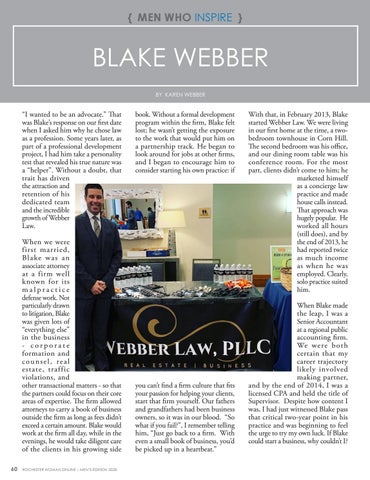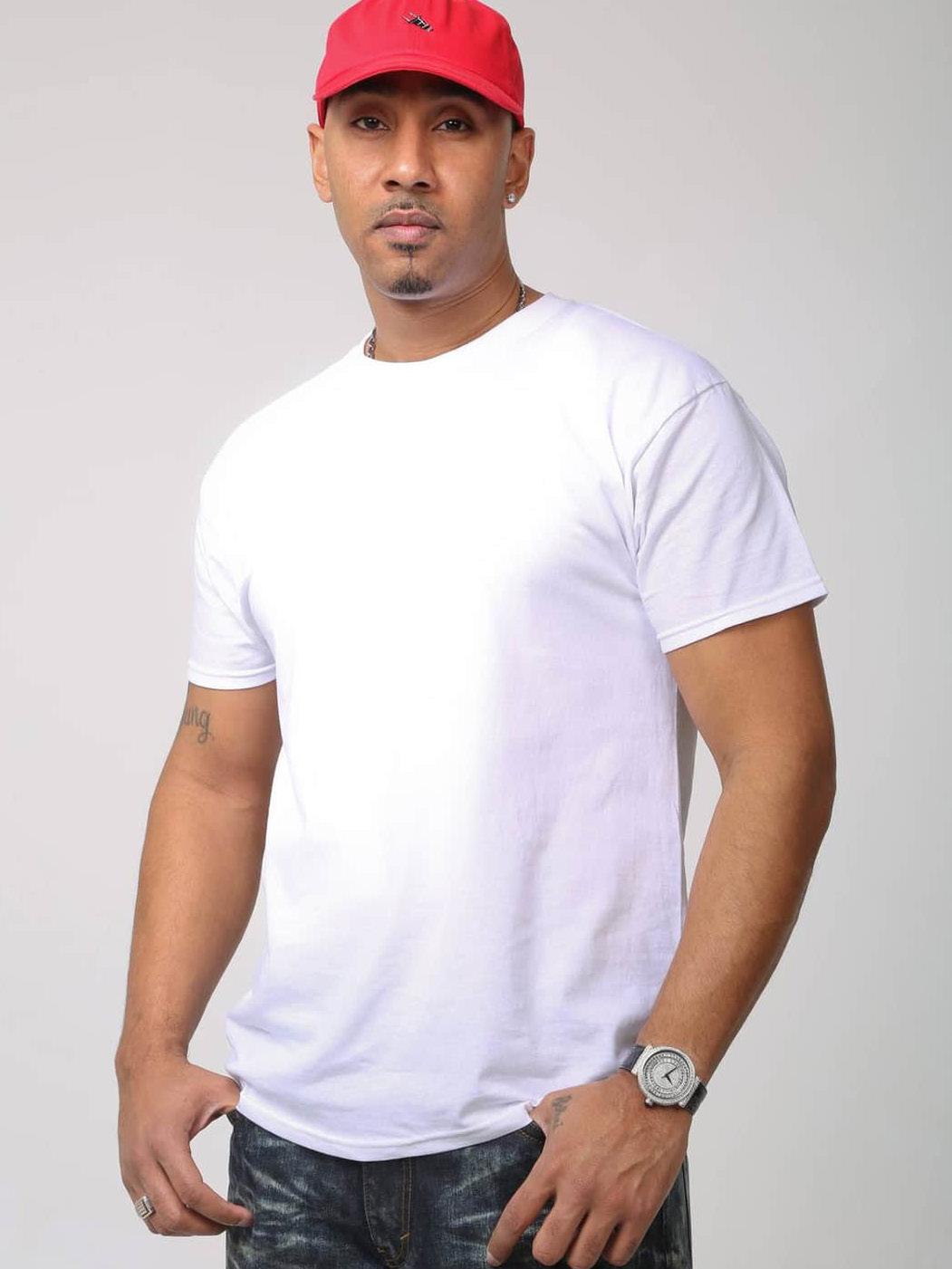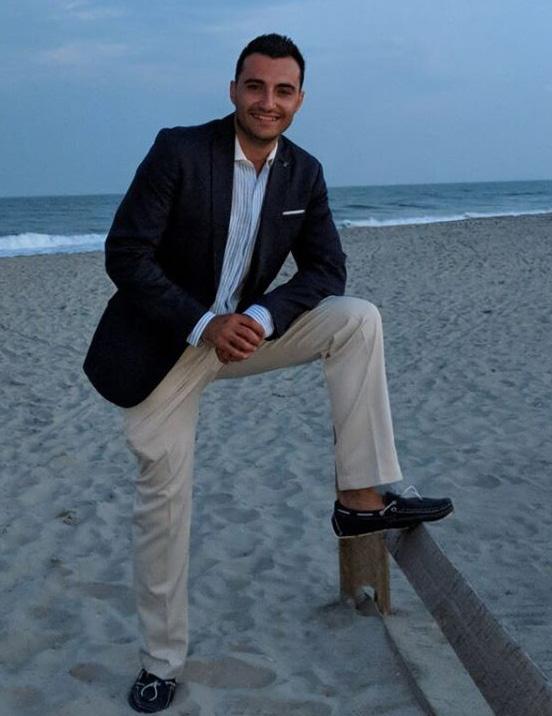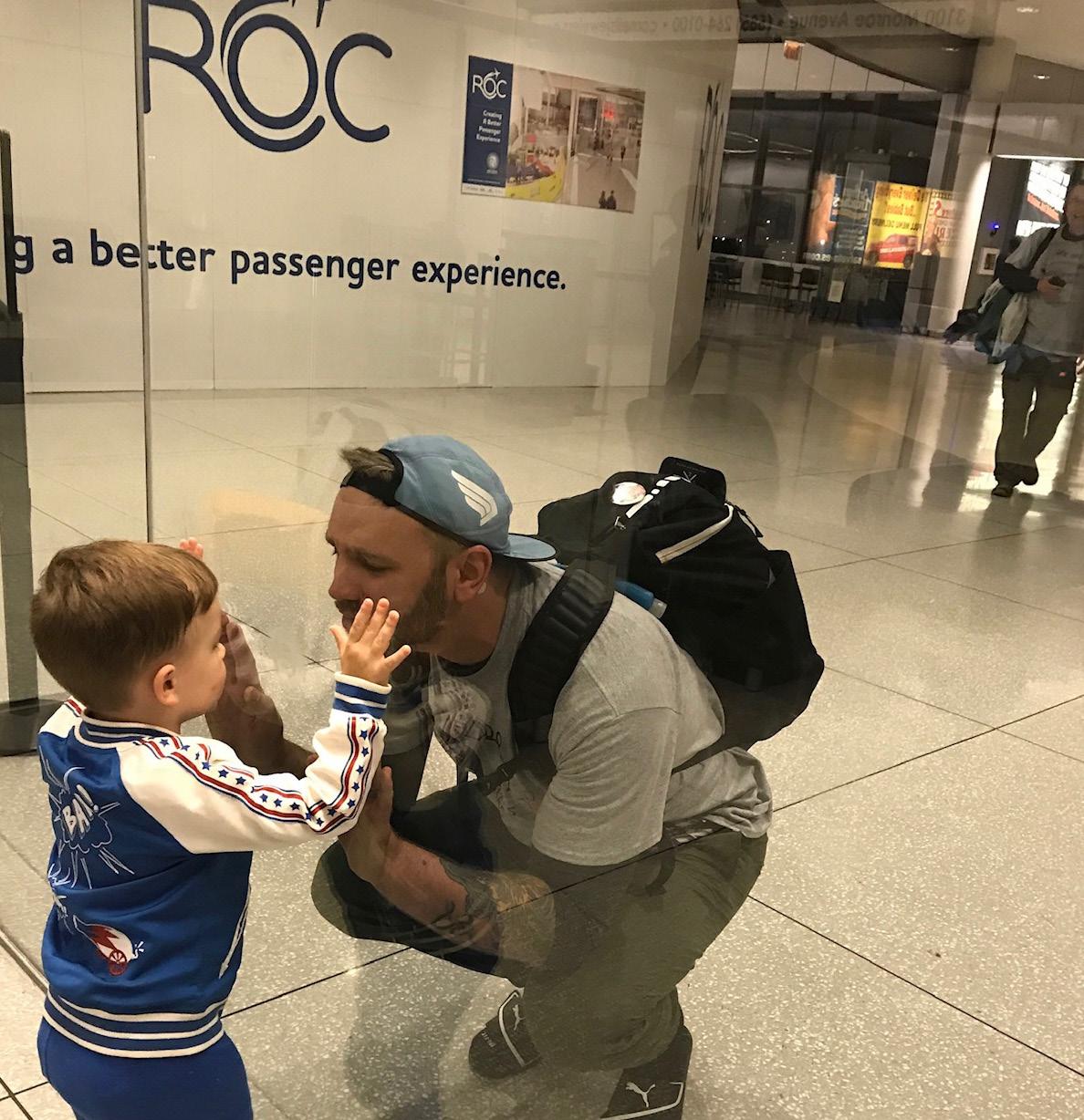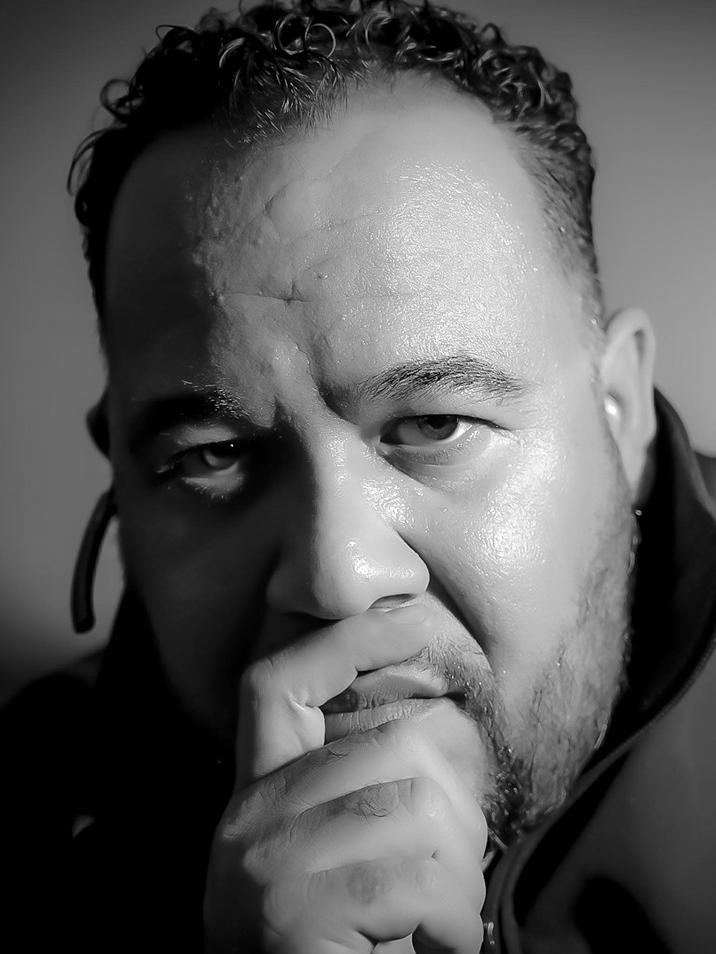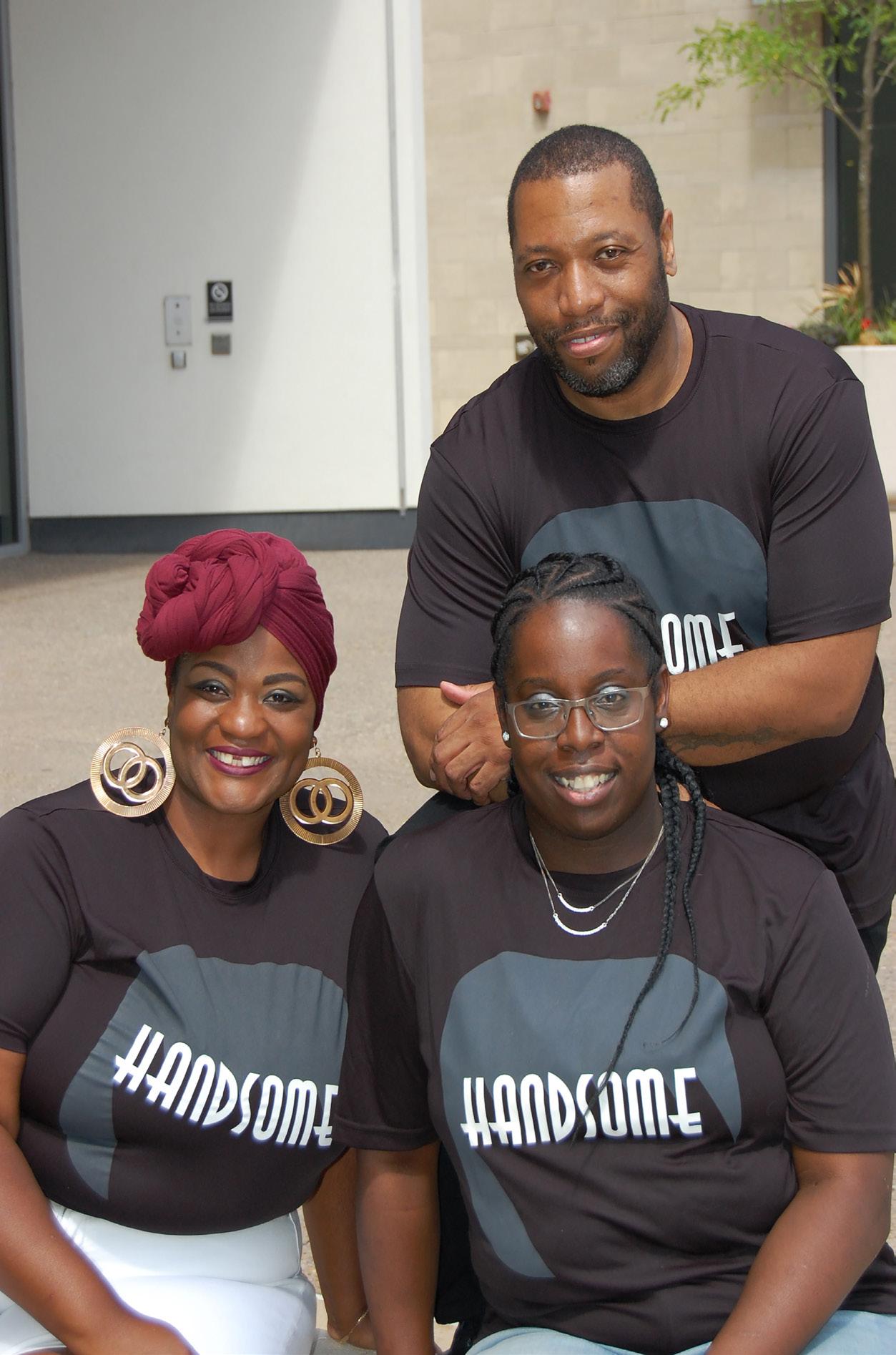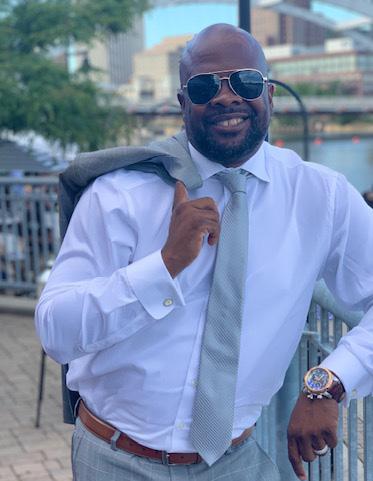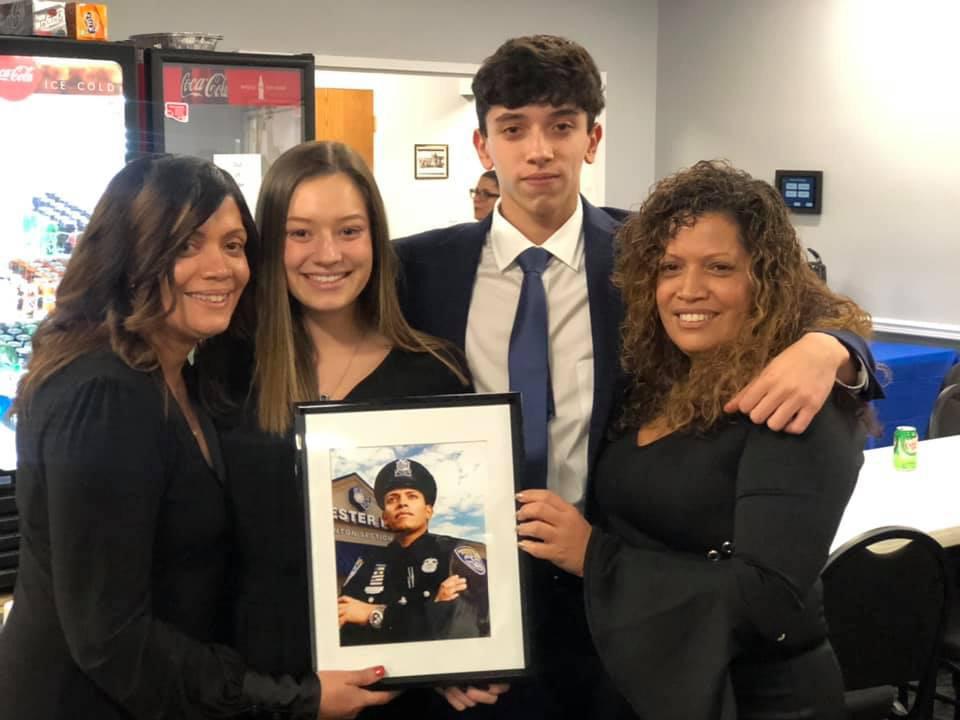{ {FOR A WHO GOOD CAUSE INSPIRE { MEN SHIFT+CONTROL }} }
BLAKE WEBBER BY KAREN WEBBER
“I wanted to be an advocate.” That was Blake’s response on our first date when I asked him why he chose law as a profession. Some years later, as part of a professional development project, I had him take a personality test that revealed his true nature was a “helper”. Without a doubt, that trait has driven the attraction and retention of his dedicated team and the incredible growth of Webber Law. When we were first married, Blake was an associate attorney at a firm well known for its malpractice defense work. Not particularly drawn to litigation, Blake was given lots of “everything else” in the business - corporate formation and counsel, real estate, traffic violations, and other transactional matters - so that the partners could focus on their core areas of expertise. The firm allowed attorneys to carry a book of business outside the firm as long as fees didn’t exceed a certain amount. Blake would work at the firm all day, while in the evenings, he would take diligent care of the clients in his growing side 60
ROCHESTER WOMAN ONLINE :: MEN’S EDITION 2020
book. Without a formal development program within the firm, Blake felt lost; he wasn’t getting the exposure to the work that would put him on a partnership track. He began to look around for jobs at other firms, and I began to encourage him to consider starting his own practice: if
you can’t find a firm culture that fits your passion for helping your clients, start that firm yourself. Our fathers and grandfathers had been business owners, so it was in our blood. “So what if you fail?”, I remember telling him, “Just go back to a firm. With even a small book of business, you’d be picked up in a heartbeat.”
With that, in February 2013, Blake started Webber Law. We were living in our first home at the time, a twobedroom townhouse in Corn Hill. The second bedroom was his office, and our dining room table was his conference room. For the most part, clients didn’t come to him; he marketed himself as a concierge law practice and made house calls instead. That approach was hugely popular. He worked all hours (still does), and by the end of 2013, he had reported twice as much income as when he was employed. Clearly, solo practice suited him. When Blake made the leap, I was a Senior Accountant at a regional public accounting firm. We were both certain that my career trajectory likely involved making partner, and by the end of 2014, I was a licensed CPA and held the title of Supervisor. Despite how content I was, I had just witnessed Blake pass that critical two-year point in his practice and was beginning to feel the urge to try my own luck. If Blake could start a business, why couldn’t I?
